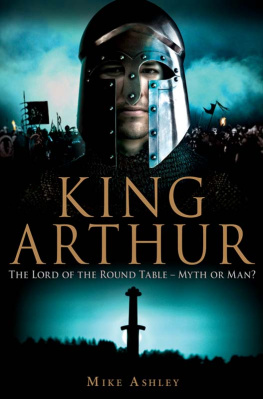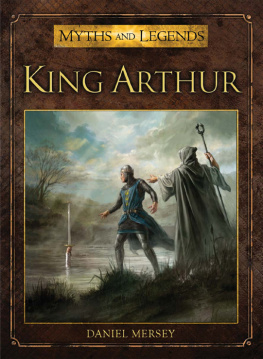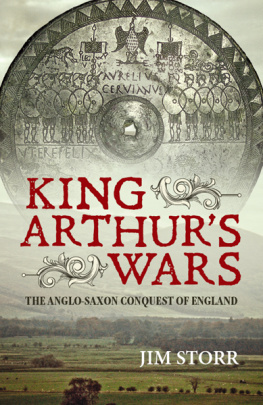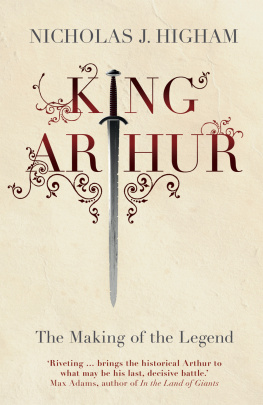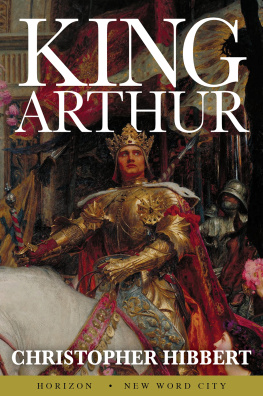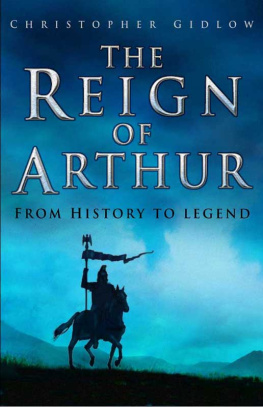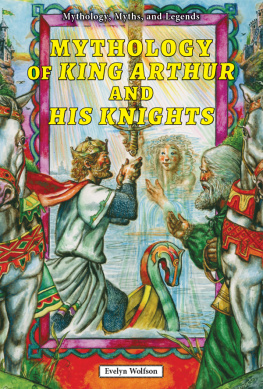
The Medieval Murderers
Hill of Bones
The seventh book in the Medieval Murderers series, 2011
The Medieval Murderers dedicate this book to our agent, Dot Lumley, who has steered us through seven books now. She has done it with patience as we talk and correspond endlessly with each other in order to settle storylines. She has done it with attention to detail, pointing out our errors and omissions. Moreover she has done it with a kindness and enthusiasm that has been difficult to imagine anyone else emulating. Thank you from all of us. We are Philip Gooden, Susanna Gregory, Michael Jecks, Bernard Knight, Karen Maitland, Ian Morson, and CJ Sansom.
Prologue In which Philip Gooden relates how two young brothers from Somerset travel to join King Arthurs forces in a final battle against the Saxon invaders.
Act One In which Susanna Gregory describes how Sir Symon Cole and his wife Gwenllian are ordered by King John to investigate the suspicious death of Bath Abbeys unpopular prior.
Act Two In which Bernard Knight records how treasures from Bath Abbey are stolen and a how a cat-catcher and a royal steward help a luckless lay-brother to avoid a hanging.
Act Three In which Karen Maitland tells how the mysterious survivor of a shipwreck flees to Solsbury Hill to escape his nemesis, only to find himself unwittingly embroiled in a plot of treachery and treason.
Act Four In which Philip Gooden recounts how Nick Revill arrives in Bath with the touring players and swiftly finds himself persuaded to impersonate a dying mans son and comes into possession of a dangerous secret.
Act Five In which Ian Morson describes how Joe Malinferno and his companion, Doll Pocket, find themselves in Bath escaping Joes dalliance with the Cato Street Conspirators. Unfortunately, the threads of Radical agitation follow them, and they are faced with solving a murder which casts a shadow over a very senior member of the royal family.
Epilogue In which Bernard Knight reveals an unexpected ending when police and archaeologists investigate the top of Solsbury Hill.
Geraint watched the lizard basking in the sun on the tiled floor. Its head was canted towards where Geraint sat a few feet away on the grassy slope. The creature was so still it might have been carved out of stone apart from the tiny pulse that throbbed on the underside of its silver-grey neck.
The lizard, about the length of a mans hand, was crouching above a fish with a great mouth and with water spouting from the top of its head. The lizard was directly over the gaping mouth. Geraint amused himself with the idea of the lizards surprise if the fish were to come to sudden life and swallow it down in a single gulp. Geraint knew the fish could not come to life, of course, since it was made up of countless little tiles that were coloured red and blue and green and silver.
Shifting his gaze without moving his head, Geraint looked across the rest of the ornamented floor, beyond the lizard and the great fish. It lay bare to the sky but was edged with random blocks of stone, the remains of the walls to the chamber. Beyond were the outlines of other rooms and even fragments of columns. The house had been built on a ledge of land on a hillside. It looked out on a circle of hills and a town below in the valley basin. Geraint wondered how the inhabitants of the villa had defended themselves, isolated, far from other habitations. Perhaps they had not needed to.
He returned his attention to the tiled floor, which showed a picture of the sea and its inhabitants but quite unlike any that Geraint had ever seen. There were creatures with swollen heads and many arms, and others whose foreparts were similar to birds, with beaks and claws, but whose hindquarters were those of fish. Among these monsters sailed small ships containing smaller men holding nets and spears.
Closer to Geraint and riding out of the sea was a great bare-chested man or god, twenty times the size of the men in boats. He was in a chariot drawn by horses with scaly fins for tails. The face of the man-god wise and vigorous reminded Geraint of their leader, Arthur. He had seen Arthur astride a horse holding the reins in the same easy fashion as the man-god in the chariot. Arthur had even spoken to Geraint as he rode by. He had scarcely been able to look at him nor had he heard the leaders words, his ears were buzzing so. But he knew the words were firm and, in their way, kindly. Kinder than he was used to hearing from Caradoc, for example.
A rustling in the grass behind him did not cause him to look round he already knew who it must be but, instead, to flick his gaze back towards the lizard. But the lizard had gone. For an instant, Geraint wondered whether the creature had been swallowed up by the great spouting fish. But that could not be, because the fishs jaws were still gaping with hunger. And because, although the lizard was real, the fish was no more than an image.
Someone clumped down the slope and clouted Geraint across the back of his head. He sighed and clambered to his feet. He turned to look at his brother, Caradoc, standing on the higher ground above. The sun was behind him so Geraint couldnt see his brothers expression but he sensed it was showing the usual mixture of irritation and impatience.
What are you doing? said Caradoc. We must be on our way. Theres no time to waste.
As if to show that his own time had not been wasted, Caradoc held up a cony by the hind legs.
Tribute, he said. A contribution to supper. When we get there.
The dead animal swayed in the evening air, its white front speckled with blood. Further up the slope sat Caradocs dog, Cynric. It stared fixedly at the rabbit, but gave no sign of anger at being deprived of its prey.
Geraint did not move. He thought of the much more valuable tribute he was bringing and his hand closed about the pouch that was attached to his belt. Then, as if to distract Caradoc from the gesture, he swept his arm over the mosaic sea-scene.
What happened to them? he said.
What are you talking about?
The ones who lived here. The Roman people who made these pictures.
Who knows? said Caradoc in a tone that meant, Who cares?.
They left long before the time of our fathers father but their traces are all around us, said Geraint. He was thinking of other villas, in better condition, that they had passed on their journey up from the south. Not just villas, either, but terraces of land with strangled vines and neglected orchard plots. Now Geraint looked in the direction of the old town tucked into the fold of the river below. He knew this was Aquae Sulis. The upper parts of the buildings glowed in the evening sun but even while the brothers watched, the light dimmed and died as if an invisible hand were wiping it away. In reality it was only the sun slipping down behind a neighbouring hill but Geraint shivered.
Dreamer, said Caradoc. And trust you to miss the only thing of value here.
He bent down and picked up a battered coin from the edge of the mosaic floor. It was true, Geraint had been so intent on the sea picture that he had overlooked the little tarnished disc. Then Caradoc swung away in a downhill direction, still holding the dead rabbit and skirting the remains of the villa, with its exposed floors and weather-beaten columns. Cynric leaped from a sitting position and bounded after him.
Geraint paused for a moment longer. Perhaps it was the image of the sea on the floor that made him think of waves of people, waves of men, flowing across this land. Men who were of a different race from him. Men such as the ones who had built this villa on the outskirts of the town in the valley and then, in a time before his fathers father, abandoned it and withdrawn like the tide. Or perhaps they had not withdrawn at all but simply died out. Which came to the same thing.
Next page

